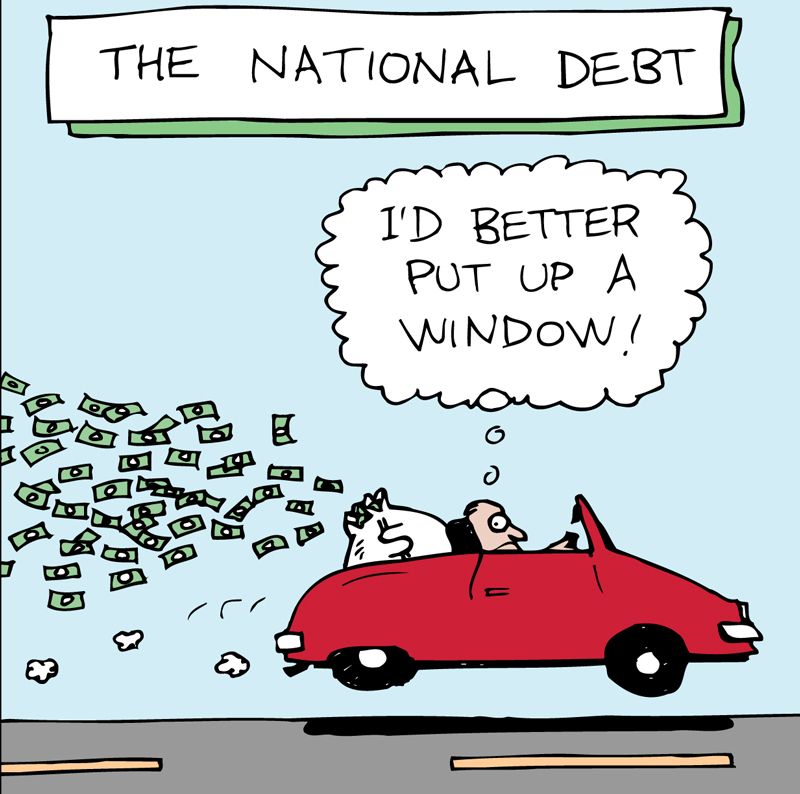America and The Bipartisan Parody – Debt Ceiling Showdown
An incoming debt default and a standoff between two headstrong parties. This is how June started for the United States government. Experts believe that this may have been one of the most futile standoffs before a debt crisis was averted. A conversation turned into a highly politicized bullfight, the US government finally showed bipartisanship, and the debt ceiling was raised. This comes with many caveats, as discussed by experts in a media briefing, earlier this month.

Speakers
- Rachel Snyderman, Senior Associate Director, Business and Economic Policy, Bipartisan Policy Center
- Shannon Buckingham, Senior Vice President for Communications and Senior Counselor, Center on Budget and Policy Priorities
- Lindsay Owens, Ph.D., Executive Director, Groundwork Collaborative
“An agreement was struck, as we all know, between the White House and the Republican leadership, and Congress got the last word and confirmed the deal,” said Sandy Close, Executive Director at Ethnic Media Services. This process has been highlighted as one of the most futile and overtly politicized conversations between the Democrats and the Republicans. It seems like the two just can’t get along on a lot of things, however, the remnants of bipartisanship remain today, evidenced by the deal signed by the Biden administration. This showdown does raise many questions. “Is this the best way to do things? Will the resulting budget cuts and spending caps help or hurt the economy? Why are poor adults the losers in this scenario? Is this the end of the moratorium on college loan repayments? Is there any sign of a positive return to bipartisan deals on other issues?” Some of the questions highlighted by Sandy Close.
Difference in Ideologies
The conversation with the experts highlighted the real issues our government faces today. Rachel Snyderman said, “I think that that reflects that not only are we in a very polarized time when it comes to our politics and our policy-making but also that there is a tremendous need for bipartisanship.” Further connecting the statement to the debt ceiling talks, Snyderman said, “We saw over the past months that the Biden Administration and Democrats were very clear on their position that they wanted to pass a clean debt limit increase as has been done before…Whereas on the other side of the political aisle, we saw Republicans not wanting to agree to a clean debt limit increase but instead that it would have to come with some sort of fiscal restructuring package or discussion debate and ultimately legislation surrounding um curbing our spending…It really was in the past few weeks, where we saw both parties really enter that negotiation route.” Snyderman ends with, “I think that the final bill, the fiscal responsibility Act of 2023, it reflects the hard work of compromise that bipartisanship is not going to please everyone but it will please the majority.”
Deal? Or No Deal?
Many lauded the debt default aversion as a commendable effort in bipartisanship. The full context, may not be as rosy as it seems. Lindsay Owens says, “I don’t think there’s any virtue in this bipartisan deal coming together. There’s nothing for either party to be boasting about. There’s no sort of glory in the fact that it is bipartisan. Owens says, “We should not be in a position where the American government is getting within a week of defaulting on its obligations.” Owens reminds us that the debt ceiling is already spending that has been incurred. It is not a budget for future spending. Raising the debt ceiling “has absolutely no bearing on fiscal matters moving forward.”
The fact that this conversation is taking place, Owens reminds us, “The reason that we’re here today talking about the budget and talking about fiscal matters is actually mostly unrelated to the debt ceiling as a sort of structural matter, but rather because of a contingent of Republicans in Congress insisted on tying a budget fight to the debt ceiling elimination.” Owens says, “The pairing of these two things is strictly artificial and strictly a political construction, not a requirement of lifting the debt ceiling.” Owens reiterates that resolving the debt ceiling crisis is nothing to be lauded about. “We shouldn’t be putting the American people in this position.”
Winners and Losers
Shannon Buckingham goes deeper into the implications of the bill passed to avert the default. On a broader scale, the two most impacted groups will be seniors dependent on benefits and low-income households. Buckingham says, “The outcomes of those debates have such profound implications for people across the country. Especially people who need support to make ends meet and who we want to ensure have the resources to thrive, and to share in this country’s prosperity.”
Painting the worst-case scenario, Buckingham says that defaulting would have had “widespread negative effects on the economy as a whole… Felt deeply by lower-income families. Buckingham says that millions of jobs would’ve been lost and the low-income communities would be hit the hardest.
Talking about the current bill passed, earlier this month, Shannon Buckingham says that “[The bill] still had some troubling implications for people who struggle to make ends meet.”
The concern is that the agreement cuts the part of the budget called non-defense discretionary funding that funds a range of national priorities. So anything from child care, education, job training, housing, to medical research, environmental protection, food safety, and like dozens and dozens more important funding areas.” These investments are critical for building our economy and for the well-being of citizens. Although, the cuts are far less from the original bill proposed, it is still going to be “troubling” says Shannon Buckingham.
The Bottom Line
The debt ceiling showdown has sparked an engaging conversation on issues being overly politicized. Bipartisanship efforts often lead to compromise which may favor the majority but there are winners and losers with every initiative in the US political system. It is time to be wise about the people we elect to represent us as fingers are getting raised on the current structures in place.


